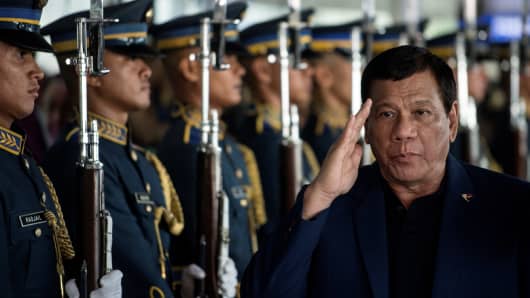basquebromance
Diamond Member
- Nov 26, 2015
- 109,396
- 27,004
- 2,220
- Banned
- #1
Trump should do the same!
https://www.nytimes.com/2018/01/15/...ld/asia/philippines-duterte-news-website.html
https://www.nytimes.com/2018/01/15/...ld/asia/philippines-duterte-news-website.html






